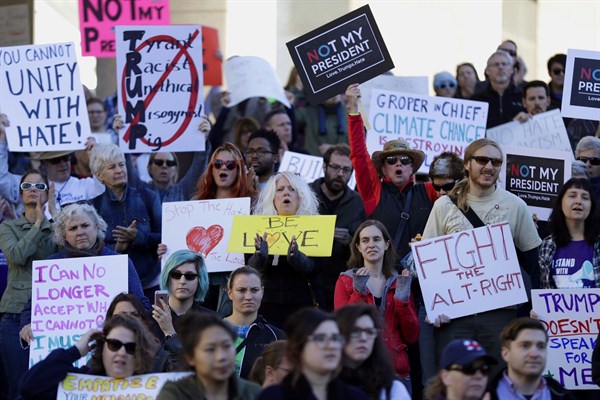The Brexit referendum and the U.S. presidential election have offered clear examples of how emotion and affect increasingly drive political behavior. In both cases, resentment and anger over unaddressed grievances, combined with fear and anxiety over radical disruptions to the economy and national identity, won out over reasoned arguments in favor of the status quo.
But emotion and affect don’t disappear with the counting of the ballots. Election victories always create euphoria among the winners and despair among the losers. The nature of President-elect Donald Trump’s insurgent candidacy and his upset victory magnify both reactions. The election outcome calls into question not only fundamental aspects of both of America’s political party coalitions but also, given the uncertainty regarding Trump’s foreign policy declarations during the campaign, America’s role in the world and, by extension, the global order built upon it.
There are potential dangers in the reactions of both the winners and the losers. The euphoria of victory often leads to overreach, making short shrift of the political capital gained at the ballot box. And as most incumbents in Western democracies can attest, the victor’s popularity, which usually spikes after the election, is often painfully short-lived.

